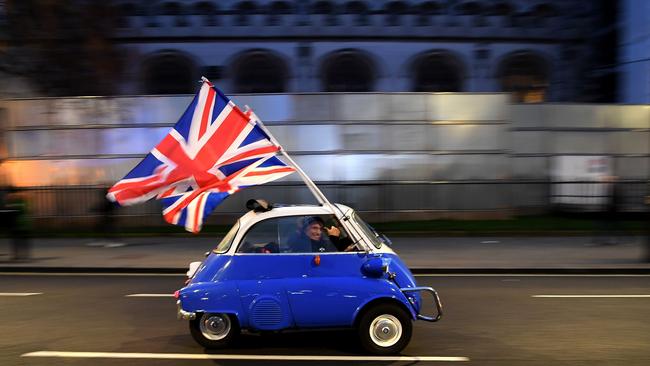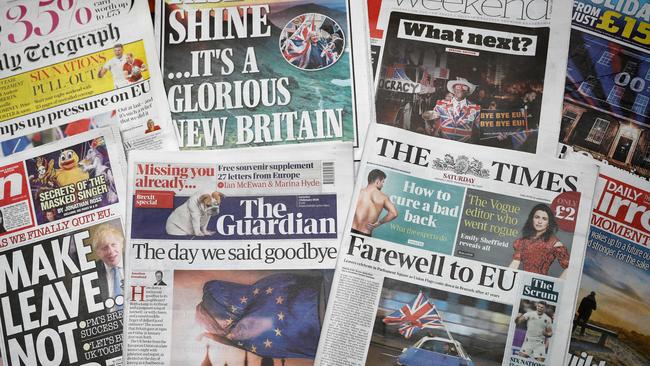EU’s parting gift to Britain: a $2bn bill
On the first day of Britain claiming independence, there were pointed barbs from both sides.

The European Commission gave the United Kingdom a farewell “gift’’ on the eve of Brexit: a fresh bill for £1.09 billion ($AU2.1bn).
The EU has calculated that because of Britain’s increase in gross national income and Value Added Tax, the country needs to top up its £9bn EU contribution for 2019.
The timing of the demand - sent to the UK Embassy by the EU on Friday afternoon - just hours before the country legally left the EU after a 47 year association, has raised eyebrows in Downing Street.
Under the complicated formulae that underpins the EU budget, successful countries are penalised and have to contribute more to the bloc. However there is usually a recalibration of the amount and the UK often receives some of the money back in the form of a rebate.
With Brexit having happened, the financial negotiation could form part of the trade talks that will begin on March 3.

But in a sign that these talks will be challenging, on the first day of Britain claiming its independence, there were pointed barbs from both sides.
British prime minister Boris Johnson has told civil servants to prepare for trading under WTO terms for all goods and services once the transition period expires at the end of the year - sending a strong signal to Brussels that he is serious about walking away from any suffocating EU trade proposals.
In return, the EU has thrown up the thorny issue of Gibraltar and indicating it will allow Spain to exclude Gibraltar from any upcoming trade deal made by the EU bloc.
This means Britain and Spain will have to agree on the future of the British overseas territory or have it sit outside any possible EU trade deal.
Meanwhile the EU continues to insist that the UK will have to adhere to EU standards and laws in order to secure a trade deal.
Charles Michel, the president of the European Council, said: “If the UK decides to diverge from EU standards, it will have less access to the single market.”




To join the conversation, please log in. Don't have an account? Register
Join the conversation, you are commenting as Logout